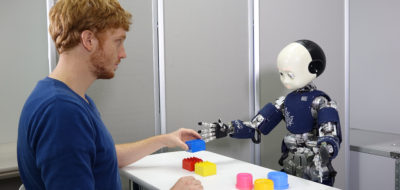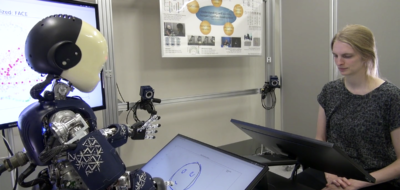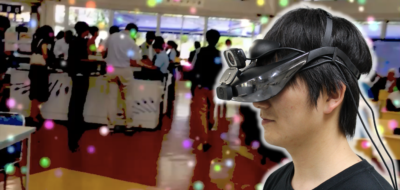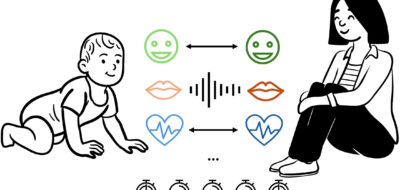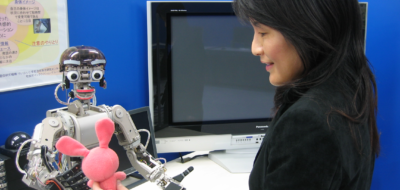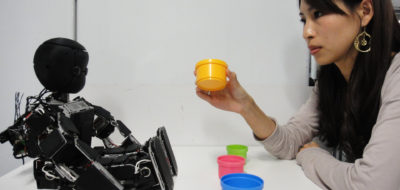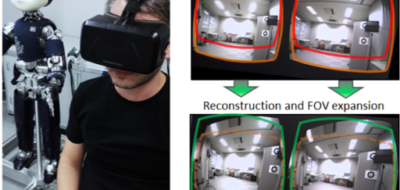Cognitive Development Based on Sensorimotor Predictive Learning
Human infants acquire various cognitive abilities in the first few years of life. Although behavioral changes in infants have been closely investigated, the underlying mechanisms for the development are not yet completely understood. We proposed a theory of cognitive development based on predictive learning of sensorimotor information. Our robot experiments demonstrated that various cognitive functions such as self-other cognition, imitation, […]
Predictive Coding Account of Cognitive Individuality and Developmental Disorder
Developmental disorders such as autism spectrum disorder have been characterized by deficits in social interaction. Recent studies in cognitive neuroscience and Tojisha-kenkyu, however, suggest that atypical processing of sensorimotor signals might be their crucial difficulty and cause deficits in higher cognitive capabilities as a consequence. We aim at understanding the underlying mechanism of developmental disorders by means of computational approach […]
Simulator of Atypical Perception in Autism Spectrum Disorder
Individuals with autism spectrum disorder (ASD) suffer from hyperesthesia/hypoesthesia as well as difficulties in social interaction. To understand the underlying mechanism for atypical perception and its influence on social de
cits, we computationally analyzed the process of how atypical perception is elicited in social contexts. Our experiment employed visual and audio processing techniques to let ASD participants reproduce their experiences, and […]
Emergence and Development of Social Interaction
As social animals, one way that humans develop learning abilities is through social interactions. However, the underlying mechanisms of the emergence of social ability and how we learn through socialization, especially at early ages, are still unclear. Our studies propose to use both bottom-up and top-down methods to investigate the coordination process between social partners interactions, aiming to explain the […]
Development of Joint Attention
Joint attention is a process to look at the object that someone is looking at. Previous studies in developmental psychology have suggested that the ability to achieve joint attention is acquired between 6 and 18 months old and that it plays an important role in infants’ further cognitive development. We investigate what inherent mechanisms enable infants to acquire the ability, […]
Motionese: Exaggerated Action for Infants and Robots
Developmental studies have suggested that human caregivers significantly modify their actions when interacting with an infant compared to with an adult. Such modification called motionese is characterised by higher roundness of movement, longer and more pauses between actions, and closer distance to the infant. However, the underlying mechanisms of motionese and influences of motionese on infant action development are uncovered […]
Telerobotics with iCub
Recent advancements in Virtual Reality (VR) and sensing devices have allowed for an increased use of them in telerobotics. Developing our system for the iCub robot (http://www.icub.org), which is the most standardized humanoid research platform for cognitive research, allowed us to envisage uses like: Wizard of Oz Human-Robot Interaction studies with much more natural behavior of the robot, since the […]
